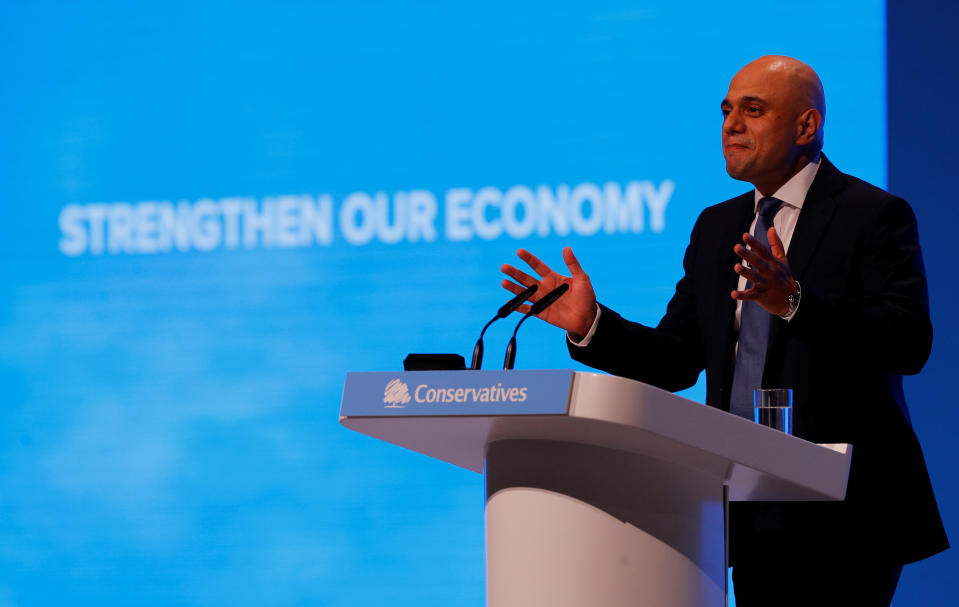Ex-chancellor Sajid Javid: 'Give jobless £100 a week to start a business'

The UK government should offer unemployed people £100 ($130) a week for a year to help launch their own businesses, according to a former chancellor.
Sajid Javid, Britain’s finance minister until earlier this year, backed a think tank’s calls for a new ‘2020 Enterprise Allowance,’ available to anyone out of work but targeted at under-30s.
Applicants would need a “viable” business plan and access to £2,000 start-up capital to be eligible, according to the proposal by Policy Exchange.
They would receive an allowance of £100 a week, as well as business mentoring, workshops and access to start-up loans. The cash would be fixed and unaffected by applicants’ income from benefits or work, including profits from the new business.
Watch: Unemployment hits 1.5 million in the UK
READ MORE: Sterling see-saws ahead of Brexit deal deadline
The UK government already has a new enterprise allowance scheme for universal credit claimants, launched by the previous coalition government.
But a report by Policy Exchange on Wednesday says it is missing “key features” that were present in a similar scheme launched in the 1980s as unemployment rocketed. The original plan’s architect, Lord Young of Graffham, also backed the proposals.
The think tank says the current scheme only pays £1,274 in total and only lasts six months, “too short a time to get a business up and running.”
READ MORE: Loneliness and isolation warning as gyms and pubs shut their doors
The existing programme is also linked to benefit levels. “This means it is gradually withdrawn as a business starts trading, which can lead to a significant income volatility — difficult even with a steady job, but even more so when on top of the added burden of running a business,” says the report.
“It would be counter-productive to cut universal credit as the business starts generating income.”
The 1980s version of the scheme “proved particularly popular with young people,” according to the think tank, and should be targeted at younger people today.
“The government’s plan for skills — however impressive — will not be enough on its own,” said Javid, now a backbench Conservative MP.
READ MORE: UK government to support job training to tackle COVID-19 unemployment
“We must also maximise the opportunities for people to exercise what they’ve learned, particularly for young people who are likely to bear the brunt of this crisis,” added Javid.
“[This scheme] has excellent potential for harnessing the entrepreneurial spirit of those who know how to take advantage of new sectors and changing markets. Young people, for whom the internet and social media is second nature, may well be one of the demographics best placed to do that.”
The figures come after official data showed a record leap in redundancies in Britain, taking unemployment levels higher than 1.5 million.
A department for work and pensions spokesperson said: “Since its launch in 2011, the New Enterprise Allowance has supported people to create more than 130,000 businesses across the country.
“Those in receipt of NEA receive payments in addition to their universal credit claim and other business support is available including from the Start-up Loan Scheme.”
The department pointed out the funding was exempt from income tax, and said those looking to start firms could access the government’s start-up loans scheme.
Watch: Why tax rises may be inevitable in Britain

 Yahoo Finance
Yahoo Finance 